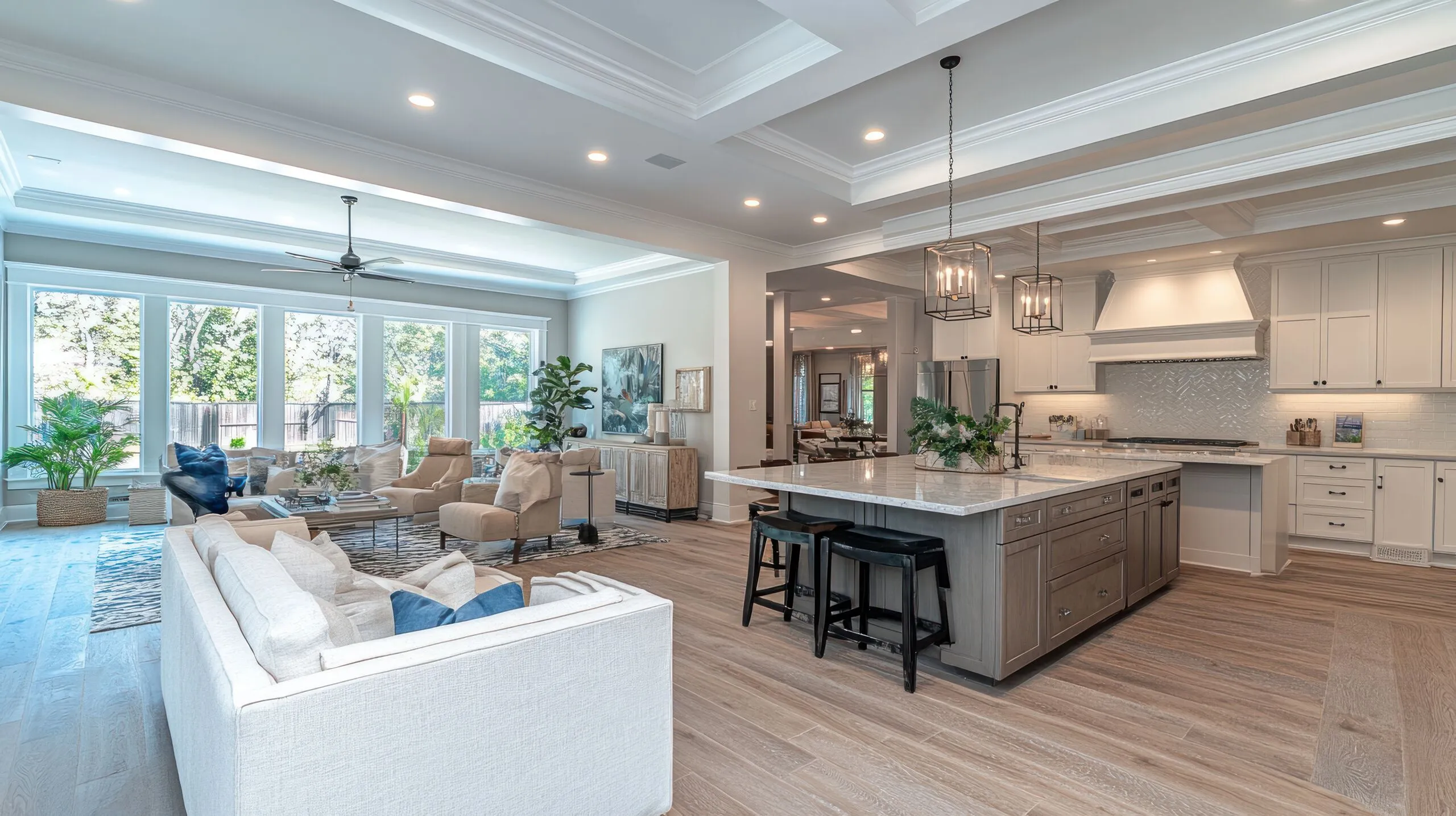Condo living has a lot of benefits for homeowners – less maintenance, amenities like pools and fitness centers, the security of living close to other people, and no need to cut grass or clean gutters. However, living in a condo also means you have additional responsibilities, especially if you want to remodel your living space. Yes, you do own your condo unit, but it’s part of a community that is subject to more stringent rules than a single-family home in a neighborhood might be.
For example, certain things inside your condo unit (like electric and plumbing) are often considered common property, since changes can affect everyone in the building. This means you need to be mindful when remodeling your condo, particularly when renovating rooms like the kitchen or bathroom. So, before you embark on a condo remodel, here are items you should consider:
Know your HOA rules
What items within the condo unit are yours, and what items within your unit are considered common property? This is extremely important for every condo owner to understand. Sure, some common items are obvious, such as pools and fitness centers, but others, like plumbing and electric, may not be.
Every homeowner's association (HOA) is governed by something called Covenants, Conditions & Restrictions (CC&Rs). These are rules that you are legally bound to follow when you purchase your condo unit. The CC&Rs are incredibly detailed in order to help you understand how the HOA defines condo elements that are common and condo elements that are yours. These will be extremely helpful when first considering a remodel.
For example, let's say the faucet in your kitchen breaks. It's your faucet, and it's your responsibility to fix it. However, to do that, the plumber must shut off the water. Now, other people in the building may be affected. Did you get permission from your HOA to shut off the water to fix the leak in your condo unit? If you didn't, you could run into trouble.
Another example might be if you want to replace the windows in your unit with newer, more energy-efficient windows. You must consider whether the windows are supposed to match from the outside to contribute to the overall aesthetics of the condominium. While the windows may be your responsibility to maintain, you might not be allowed to change them unless you use a specific style or color approved by your HOA.
Even seemingly simple things, such as flooring choice, could be restricted during a condo remodel. For example, if you live in a stacked building where the units are on top of one another, you might not be allowed to replace the carpet in the living room with hardwood floors. This could be defined by the HOA because hardwood floors may be considered too noisy and disturbing to the neighbor who lives in the condo unit below you.

Adjust your timeline
When remodeling requests require the permission of an HOA, this will likely cause some changes to your timeline. You will have to follow a process to get permission to make the changes you want during the renovation, and this could take time. For instance, your HOA may only meet once a month to consider these types of remodeling requests.
In addition to seeking your HOA's approval, you may also need to get building permits from the local jurisdiction in which you live. For example, if you live in the city of Destin, Florida, you have to work with both a building contractor and a general contractor on any condo remodeling project.
Once you have all the proper permissions and permits, there may also be other items that slow down a typical construction timeline. Your HOA may have policies about what days or times to have materials brought into the building. Your HOA may also have limitations on the days and times that construction activities can take place. There may be restrictions on what elevators can be used to bring in construction materials or where contractors can park. Remember, your HOA is responsible for making sure everyone in the community enjoys a certain standard of living, so this can cause some hiccups in the condo remodeling process.
Ask for assistance
Before starting a remodeling project, it might be helpful to talk to neighbors who have undergone remodeling projects in the building and ask them for tips and advice. You may even want to ask your HOA or neighbors for contractor recommendations. Contractors who have worked in the building before are familiar with things like:
- What the turning clearances out of the elevators are, so contractors can move materials into the condo
- What licensing and insurance requirements the contractor must have to be approved by the HOA to work in the unit
- Where the common elements like pipelines, vents, or structural supports are located within the building
Get everything in writing
Don't start replacing your front door after a quick conversation with your condo board president in the hallway. Besides the fact that the front door is likely common property, your board president may have had ten other things on his or her mind that day. The board could easily forget your request, and the fines and penalties for violating your CC&Rs can be hefty, so make sure you get permission in writing.
If you are considering a condo remodeling project, contact the team at Kitchen & Bath Center. We are happy to guide you through the process of a condo renovation. Our project managers can assist you from day one, helping you plan each piece, arrange contractors, and pick out materials. Learn more about remodeling a condo kitchen here or a condo bathroom here.


